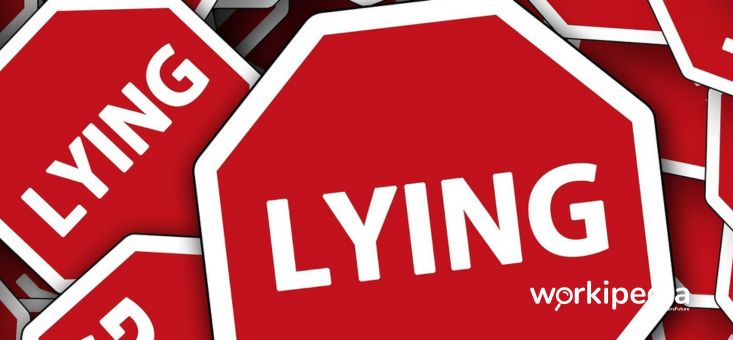Often seen as the best chance to seal the deal, you might be tempted to lie in an interview to make a good impression, or to get a better compensation package.
Please don’t. Read on to find out why.

Lying about salary during interviews
It’s tempting to lie about your last salary, given that your next salary could be dependent on it. However, potential employers can easily access your past salary records. For example, employers can gauge your last salary drawn through your CPF statement submitted with your application, as well as from checking with the human resources of your previous companies. Lying could jeopardise your chances of employment in the company or even the industry.
Tips for you:
- Justify a higher remuneration through logical reasoning
- Highlight your past successes, achievements, and skills, and share specific examples.
- Reflect if there are circumstances where you might be willing to accept a lower salary. For example, your decision to join a start-up, enter a new space, or seek better work-life balance.
Lying about job history during interviews
Explaining why you left your last job can be challenging, especially if you were asked to leave.
Avoid complaining or getting emotional as it would seem like your incompetence or attitude might have been the issue.
Tips for you:
- Calmly explain the situation that led to your termination
- Share the circumstances that led to it. Example of reasons could include your company being taken over, family circumstances, or a change in line manager with different expectations
- Emphasise the positives. For example, talk about how you got along well with people at the office, or obtained good references from colleagues
Lying about criminal history during interviews
You might feel that lying about your criminal record can give you a better chance of gaining employment. However, there are severe consequences of being found out. Even if the offence took place many years ago, a criminal record is a permanent public record.
Tips for you:
- Your past does not define your future, and it is important to show that to your potential employer
- Avoid displaying negative vibes like anger, frustration or resentment
- Turn your experience into positives by sharing how you have learned from your mistakes, and showing gratitude for the people who have helped you along the way
Lying about skills and competencies during interviews
Lying about your skills may help your resume stand out, but you are likely to be exposed during the interviews or assessment tests. Worse still, you would not want your supervisor to discover that you lack the competencies only after you have started the job!
Tips for you:
- Show how you make up for the lack of technical skills by taking on courses, volunteering, or working on ad-hoc projects
- If you have exposure or achievements in certain areas, be sure to include them in your resume no matter how small they are
Interested to get professional feedback on your job interview skills? A Career Coach can help to uncover your blind spots by giving you an insight into what employers and recruiters look for in interviews. Register for Career Coaching here, or call 6883 5885 today!















